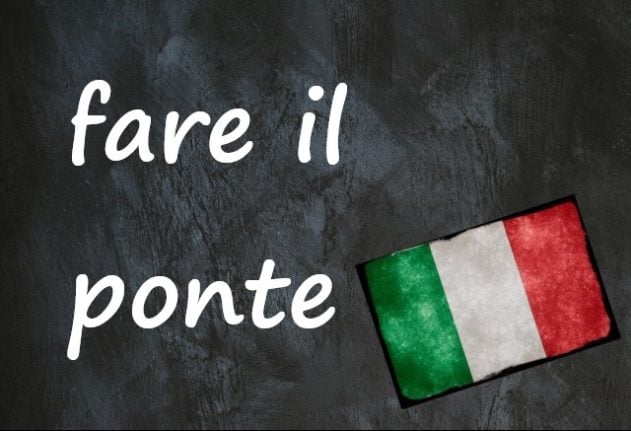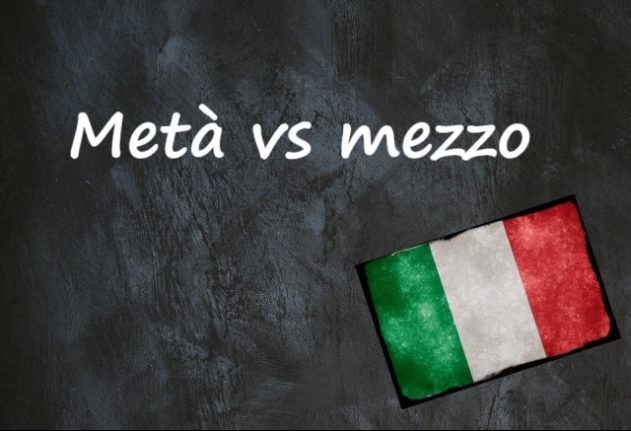Italy’s public holidays often fall in the middle of the week – and this gives rise to the popular Italian practice of ‘doing the bridge’.
Many people fare il ponte or ‘do the bridge’ to create a long weekend when a public holiday falls on a Tuesday, as it does this year with Liberation Day (la Festa della Resistenza) on April 24th.
READ ALSO: Calendar: How to make the most of Italy’s public holidays in 2023
While some countries, for instance the UK, shifts the date of its public holidays to ensure they’re always on a Monday, Italy lets them fall whichever day of the week they come.
That’s a bummer when they fall on a weekend, but a bonus whenever they’re on a weekday.
What to do if your Republic Day or Ferragosto ends up on a Tuesday or Thursday? Of course you’re not going to work one day and be off the next – that’s just silly.
The civilised thing to do instead, naturally, is ‘make a bridge’ between your day off and the weekend, by taking that troublesome Monday or Friday off.
Grazie al ponte, avremo quattro giorni di vacanza.
Thanks to the long weekend, we’ll have four days off.
Abbiamo fatto un ponte di tre giorni.
We took three days off.
Avete progetti per il ponte?
Any plans for the long weekend?
If the holiday happens to fall on a Wednesday, even better – just do the pontone (big bridge), and take two days off – or the whole week.
Italy’s Labour Day (Festa dei Lavoratori) this year is on a Monday, so even though that doesn’t necessarily make for an ideal bridge, you could take the Friday or Tuesday off and have a four-day mini break for the price of one day’s holiday. Not too shabby.

Do you have a favourite Italian word you’d like us to feature? If so, please email us with your suggestion.



 Please whitelist us to continue reading.
Please whitelist us to continue reading.
I think the Local content is excellent. But the subscription software/system is very clunky. Could do better.
Same in Spain, it’s “el puente” and there are lots of them.